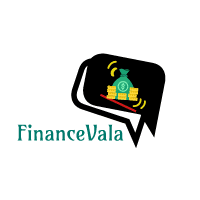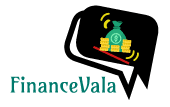How To Become Quantitative Trader: Are you good with statistics and find the financial world fascinating? If so, you could find working as a quantitative trader to be exciting. The practice of making financial market decisions using mathematical models, statistical analysis, and automated trading systems is known as quantitative trading. In this post, we’ll examine the steps you can follow to become a successful quantitative trader.
What is Quantitative Trading?
A trading method that uses mathematical models and data analysis to execute transactions is known as quantitative trading, also known as algorithmic trading or systematic trading. Utilizing computer programs and algorithms involves creating and putting into action trading strategies.
The goal is to locate lucrative market opportunities through quantitative research, including statistical trends, market trends, and pricing changes.
Skills Required For A Quantitative Trader (How To Become Quantitative Trader)
Becoming a quantitative trader requires a combination of technical and analytical skills. Here are some essential skills that can help you excel in this field:
Education and Qualifications
A strong educational foundation is vital for a career in quantitative trading. While there is no specific degree required, a bachelor’s or master’s degree in finance, economics, mathematics, computer science, or a related field can provide a solid base. Courses in statistics, econometrics, machine learning, and financial markets are particularly beneficial.
Programming Languages for Quantitative Trading
Proficiency in programming languages is essential for implementing trading strategies and analyzing market data. Python, R, and MATLAB are widely used in quantitative finance due to their extensive libraries and statistical analysis capabilities. Learning languages such as C++ and Java can also be valuable when working with high-frequency trading systems.
People Also Read: Complete Path Towards Intraday Trading
Understanding Financial Markets
To succeed as a quantitative trader, you must have a deep understanding of financial markets, including different asset classes, market structures, and trading mechanics. Stay updated on economic news, market trends, and regulatory changes that can impact trading strategies.
Statistical Analysis and Modeling
Strong statistical analysis skills are crucial for quantitative trading. You should be comfortable working with large datasets, applying statistical techniques, and developing models to uncover patterns and relationships in financial data. Knowledge of time series analysis, regression analysis, and machine learning algorithms is beneficial.
Risk Management and Portfolio Optimization
Quantitative traders must have a thorough understanding of risk management principles and portfolio optimization techniques. This involves assessing and managing risks associated with trading strategies, diversifying portfolios, and allocating capital efficiently to maximize returns while minimizing risks.
People Love To Read This: Best Tips To Plan Your Finance & Early Retirement
Backtesting and Simulation
Backtesting allows quantitative traders to evaluate the performance of trading strategies using historical data. It helps assess the viability of strategies, identify potential flaws, and optimize parameters. Simulations provide valuable insights into the expected behavior of trading algorithms under different market conditions.
Building Trading Algorithms
Proficiency in building trading algorithms is a key skill for quantitative traders. This involves translating trading strategies into computer programs that can execute trades automatically. You should be familiar with algorithmic trading frameworks and platforms such as MetaTrader, NinjaTrader, or proprietary systems used by financial institutions.
Data Analysis and Data Mining
Quantitative traders rely on data analysis and data mining techniques to extract meaningful insights from vast amounts of data. You should be proficient in data manipulation, cleaning, and visualization using tools like Pandas, SQL, and Tableau. Data mining techniques, such as clustering and classification, can help uncover hidden patterns and relationships in financial data.
Algorithmic Trading Platforms
Familiarize yourself with popular algorithmic trading platforms and tools used in the industry. Platforms like MetaTrader, TradeStation, and Interactive Brokers offer robust trading functionalities and access to various markets. Understanding how to navigate and utilize these platforms effectively can enhance your trading capabilities.
Real-World Experience and Internships
Gaining practical experience is invaluable in the field of quantitative trading. Look for internship opportunities or entry-level positions at financial firms, hedge funds, or proprietary trading firms. This hands-on experience will allow you to apply your knowledge, learn from industry professionals, and understand the dynamics of real-time trading.
Networking and Continuous Learning
Networking plays a very important role in the finance industry. Attend industry events, conferences, and workshops to connect with professionals in quantitative trading. Engage in online communities and forums dedicated to algorithmic trading to stay updated on the latest trends, strategies, and technologies. Continuous learning is essential to adapt to evolving market conditions and new technologies.

Conclusion
Becoming a quantitative trader requires a combination of technical skills, market knowledge, and analytical thinking. By acquiring a solid educational foundation, programming proficiency, and hands-on experience, you can embark on a rewarding career in quantitative trading. Stay curious, continuously update your skills, and embrace the dynamic nature of the financial markets to thrive in this field.
FAQs (Frequently Asked Questions)
Q1. Is a finance degree necessary to become a quantitative trader?
A.1 While a finance degree is not mandatory, a strong educational background in finance, mathematics, computer science, or a related field is beneficial. It provides a solid foundation and enhances your understanding of financial markets and quantitative techniques.
Q2. Do I need advanced programming skills to be a quantitative trader?
A.2 Proficiency in programming languages like Python, R, and MATLAB is essential for quantitative trading. However, you can develop these skills through practice, online resources, and courses specifically focused on programming for finance.
Q3. Can I become a quantitative trader without prior trading experience?
A.3 While prior trading experience can be advantageous, it is not a prerequisite. Gaining experience through internships, personal projects, and learning from industry professionals can help you build the necessary skills and knowledge.
Q4. How long does it take to become a successful quantitative trader?
A.4 he time required to become a successful quantitative trader varies. It depends on factors such as your educational background, programming proficiency, market knowledge, and practical experience. Continuous learning and dedication are key to honing your skills and staying ahead in this competitive field.
Q5. Are there any risks involved in quantitative trading?
A.5 Like any form of trading, quantitative trading involves risks. It is crucial to develop robust risk management strategies, thoroughly backtest your trading algorithms, and stay vigilant about market conditions. Adhering to sound risk management principles can help mitigate potential risks.
Q.6 What do quant traders study?
A.6 Quant traders study mathematical models, statistical analysis, and algorithmic trading strategies to identify profitable trading opportunities in financial markets.

